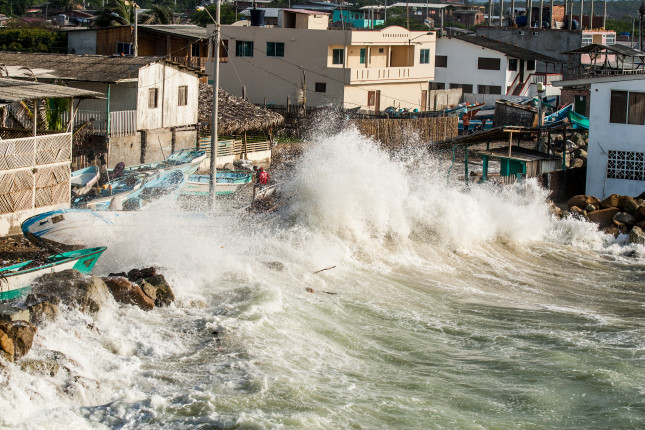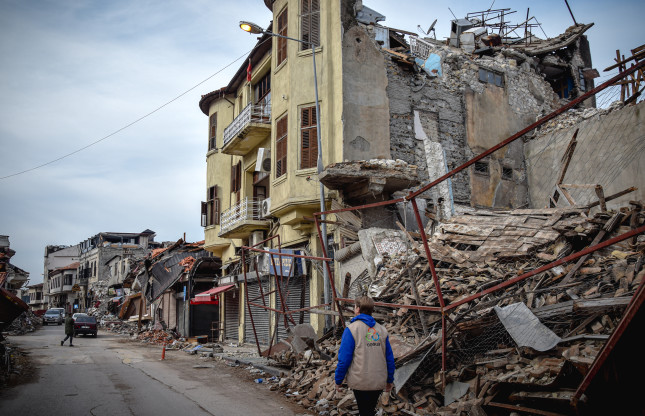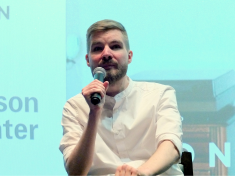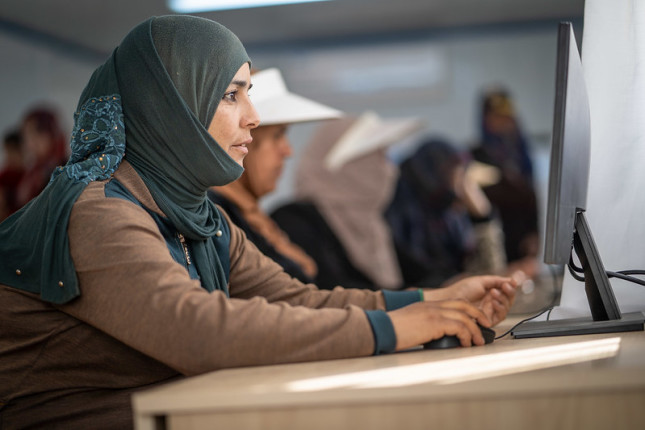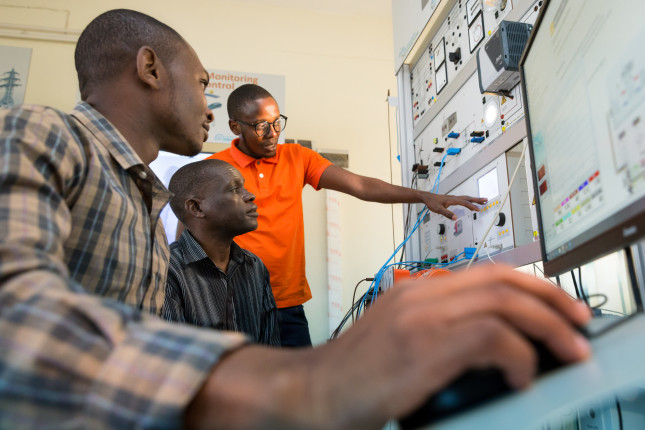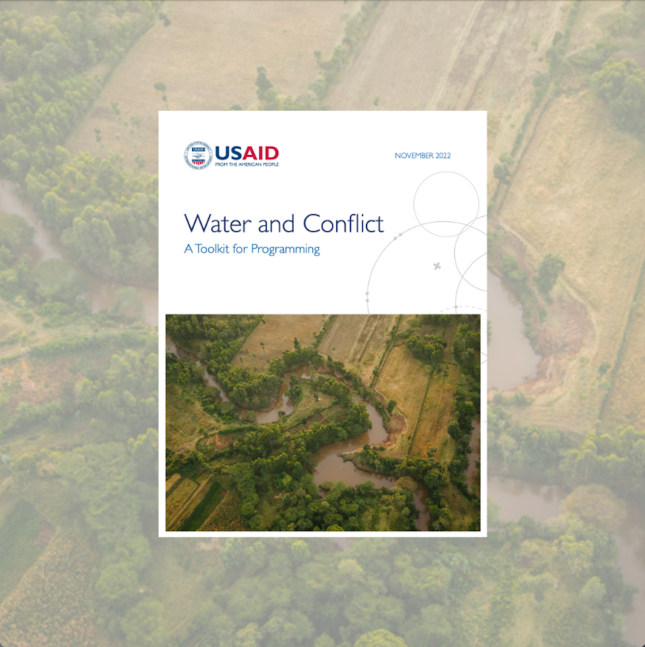-
Healthy Women, Healthy Economies: Translating Evidence to Impact
›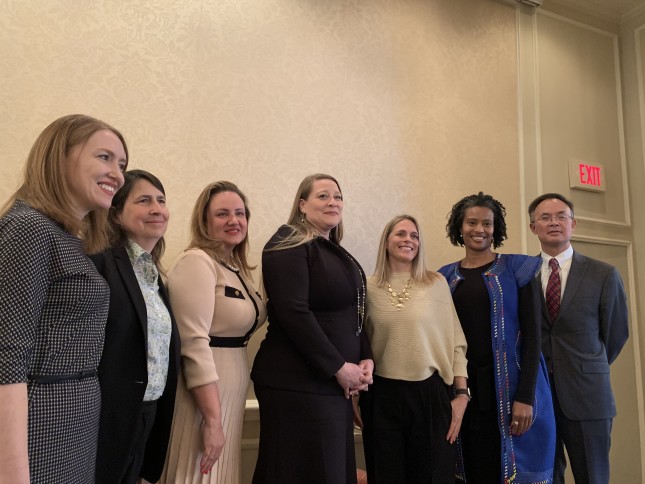
“Women’s economic participation promotes economic growth and security. It’s good for the women involved. It’s good for the girls who dream of following in their footsteps,” said Ambassador Mark Green, President and CEO of the Wilson Center at a recent Women’s History Month private event in Washington, DC hosted by the Wilson Center and EMD Serono, the healthcare business of Merck KGaA, Darmstadt, Germany.
-
Climate and Coastal Adaptation: The Need for Urgent Planning
›
The latest report from the UN’s Intergovernmental Panel on Climate Change highlights the small window of opportunity available to achieve climate resilient development, despite the growing risks of reaching tipping points. Environmental advocates argue that the UN’s warnings should remain front-and-center, including those that highlight worsening climate trends already experienced by developing nations.
-
Shaken to The Core: The Plight of Syrian Refugees After February’s Earthquake
›
Madiha vaguely remembers her family fleeing war-torn Syria. But even a decade later, she still bursts into tears describing their midnight escape across the border to Turkey. She and her family were forced to flee after losing family members in a civil war in which they had no stake.
Little did Madiha—who is now 11 years old—and her family know they would experience another monumental trauma a decade later. This time, it was a 7.8 magnitude earthquake that rocked large swaths of southern Turkey on early February 6, 2023.
The roof they built with their own hands collapsed over their heads, killing several of Madiha’s nieces and siblings. “A large piece of brick fell on my mother’s leg, but she luckily survived,” she said tearfully.
-
Women’s Leadership: Efforts to Close the Gender Gap
›
In this Women’s History Month edition of Wilson Center NOW, Women’s Leadership: Efforts to Close the Gender Gap, John Milewski, Moderator of the Wilson Center NOW series, interviews Sarah Barnes, Project Director for the Wilson Center’s Maternal Health Initiative, and Samantha Karlin, Founder and CEO of Empower Global, a gender consulting firm that works with organizations to help them better recruit, retain, and advance women. They discuss feminist leadership, women in the think tank space, and the work remaining to achieve gender equality. The 2023 Women’s History Month theme is Women Who Tell Our Stories.
-
New Security Broadcast | Ecoaction’s Kostiantyn Krynytskyi on Securing Ukraine’s Energy Future
› Since the start of Russia’s war in Ukraine, Kostiantyn Krynytskyi, Head of Energy at Ecoaction, and his colleagues, have been tracking the ongoing environmental damage caused by Russia’s aggression. In today’s episode of New Security Broadcast, ECSP Director Lauren Risi speaks with Krynytskyi to discuss how Ecoaction, the largest environmental NGO in Ukraine, is mapping out the environmental destruction caused by the war and working to develop a green post-war reconstruction of Ukraine. Krynytskyi shares how the war has impacted Ecoaction’s priorities and shifted its approach to address short-term energy needs in Ukraine while safeguarding a secure and sustainable energy future.
Since the start of Russia’s war in Ukraine, Kostiantyn Krynytskyi, Head of Energy at Ecoaction, and his colleagues, have been tracking the ongoing environmental damage caused by Russia’s aggression. In today’s episode of New Security Broadcast, ECSP Director Lauren Risi speaks with Krynytskyi to discuss how Ecoaction, the largest environmental NGO in Ukraine, is mapping out the environmental destruction caused by the war and working to develop a green post-war reconstruction of Ukraine. Krynytskyi shares how the war has impacted Ecoaction’s priorities and shifted its approach to address short-term energy needs in Ukraine while safeguarding a secure and sustainable energy future. -
Pushing Back the Pushback: Addressing the Complexities of Gender and Migration
›
“We must unite our efforts to push back the pushback,” said Katrín Jakobsdóttir, Prime Minister of Iceland, at a recent side event during the 67th Session of the Commission on the Status of Women (CSW67). Humanitarian crises and forced displacement increase pushback against women’s and girl’s human rights and safety. Jakobsdóttir called for global efforts to recognize this inequity and to fight for gender equality in humanitarian responses.
-
What Will Change at the World Bank Mean for Climate Policy?
›
World Bank President David Malpass announced his resignation in mid-February 2023, and will step down by June 2023—about a year before finishing his five-year term. As several public officials indicated after the announcement, the climate legacy Malpass leaves behind is lacking. Indeed, the Bank itself has also been under scrutiny with recent calls for reform on climate finance.
The Biden Administration quickly announced Ajay Banga as their nominee in mid-February. If confirmed, Banga will step into this role in a high-profile moment, and his own stance on climate issues is already under close examination.
-
USAID’s Revised Water and Conflict Toolkit
›
Links between water and conflict seem to crop up everywhere one looks these days. The Horn of Africa will soon face a sixth consecutive failed rainy season in 2023—its worst drought on record. Not only is this drought a consequence of global climate change, but it has also led to widespread food shortages and local civil conflicts. And over the past year in Ukraine, Russian troops have directly damaged that nation’s already vulnerable water systems, including pipelines, pumping stations, and treatment facilities. These repeated attacks on water infrastructure have not only undermined local livelihoods in Ukraine, but they have also polluted surface waters and threatened biodiversity.
Showing posts from category *Main.


